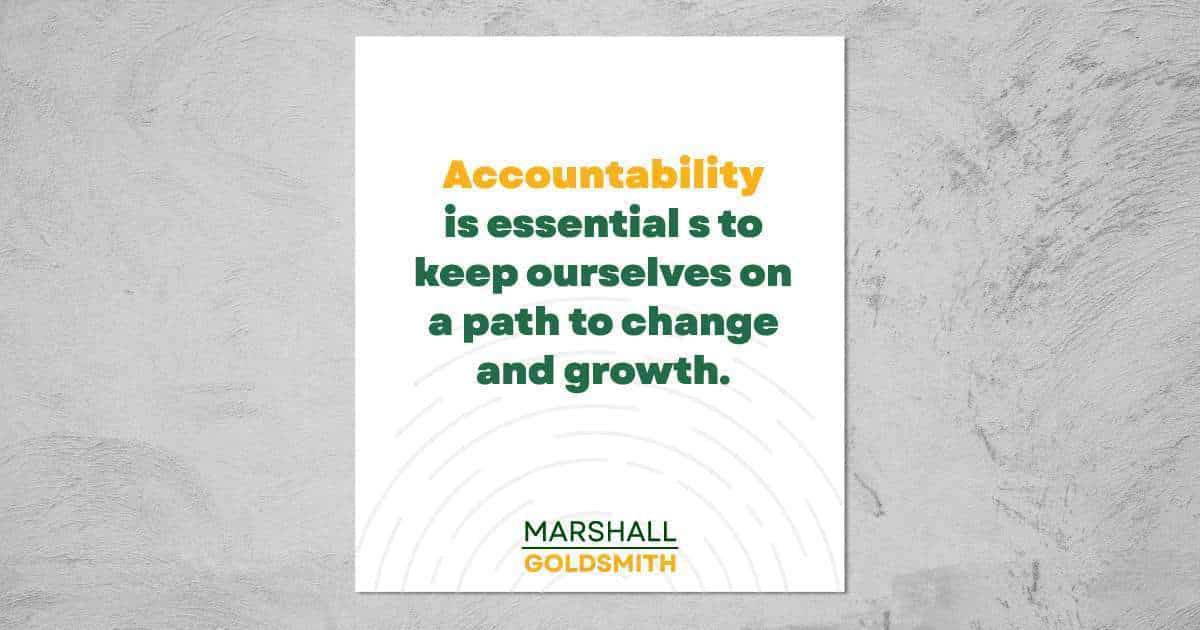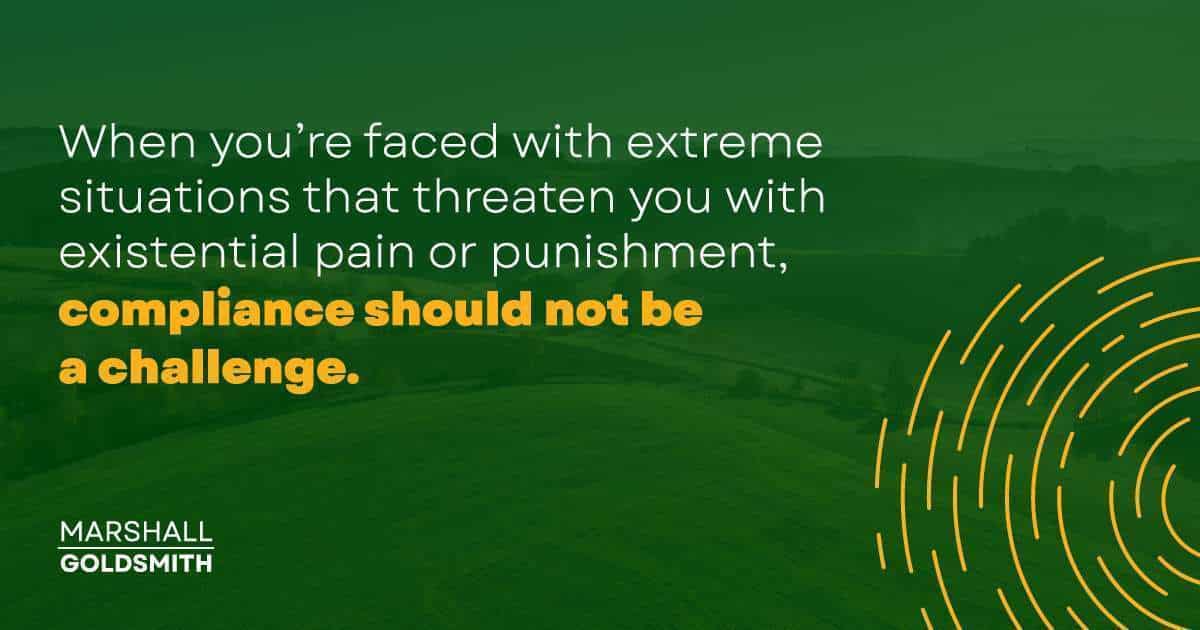Playing Favorites By Marshall Goldsmith There’s a reason I devote...
How accountable are we to others around us? How accountable are we to ourselves? Do we even ask ourselves whether we’ve held ourselves accountable during our days to the things we told ourselves that we set out to do?
Probably not.
Accountability is one of the most important things to do in keeping ourselves on a path to change and growth. But it’s often undefined.
How do you hold yourself accountable? And when?
Unlike compliance, which is our productive response to the expectations imposed on us by other people, accountability is our response to expectations we impose on ourselves.

Our sense of accountability comes in two models: private or public.
The to-do list is a common example of private accountability. We scribble our daily to-do items on a yellow pad or type them into our mobile phone, and then cross them out as we go through our day. Each cross-out is a small private victory. If we only get through half our list, we carry over the undone items to the next day. If some of them remain undone a week later, the frustration or shame is ours alone. No one else needs to know.
I prefer public disclosure. When your intentions are out in the open, the stakes are automatically higher (people are watching) and so, hopefully, is your performance. For example, you announce your goal to friends, you mention it on social media — and suddenly you are accountable not only to yourself but to others. You’re more likely to achieve what you set out to do if others are watching you, rooting for you.
The specter of a public setback, coupled with your private disappointment, is a powerful motivator.
This is one reason I insist that my coaching clients fully advertise their plans to change their behavior to the people they work with: Disclosure makes the effort to change visible; visibility elevates accountability.

Adding Too Much Value Won’t Get You There By Marshall...
C-Suite Master Class: No, But, However By Marshall Goldsmith Continuing...
The Doerr Institute: Expanding the Market for Coaches By Marshall...
Making Leadership Development Part of the College Degree at Rice...
Sanyin Siang – Winner of the Thinkers50 Marshall Goldsmith Coaching...
Thinkers50 Marshall Goldsmith Distinguished Achievement Award in Coaching – Nominees...
Leading with Influence: What Is Influence360°? By Marshall Goldsmith Founder...
Are You a Dominator, Manipulator, Persuader or Influencer? By Marshall...
Leading with Influence: Redefining Modern Influence Part 2 By Marshall...
My mission is simple. I want to help successful people achieve positive, lasting change and behavior; for themselves, their people, and their teams. I want to help you make your life a little better. With four decades of experience helping top CEOs and executives overcome limiting beliefs and behaviors to achieve greater success, I don’t do this for fame and accolades. I do this because I love helping people!
As an executive educator and coach, I help people understand how our beliefs and the environments we operate in can trigger negative behaviors. Through simple and practical advice, I help people achieve and sustain positive behavioral change.